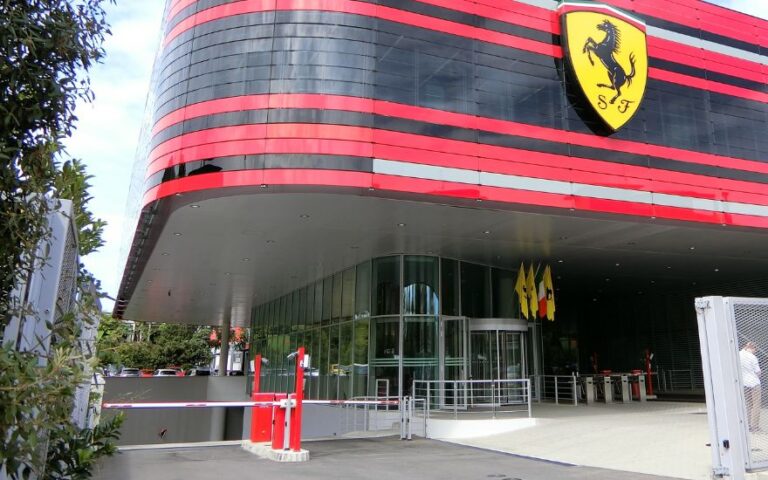Despite international attempts to phase out the technology, Ferrari plans to keep making vehicles with internal combustion engines until the late 2030s.
The head of the Italian factory said it would be “arrogant” to tell consumers what they may and cannot purchase.
The shift toward electric vehicles creates a significant marketing problem for Ferrari and other luxury manufacturers.
However, in 2025, the business plans to release its first electric supercar.
The roar of an eight- or twelve-cylinder internal combustion engine has long been a major selling point. But electric vehicles produce far less noise.
However, in two years the business plans to release its first entirely electric vehicle, which it claims would provide a “unique driving experience.”
As the CEO of competitor brand McLaren said this week at an FT automotive summit, the technology is “not ready” for usage in supercars owing to the weight of the batteries, which puts it at odds with the competition.
Ferrari has pledged to become carbon neutral by 2030, and last year they announced a three-pronged strategy for producing new cars. It predicted that by the end of the decade, electric and hybrid vehicles will account for a growing share of its lineup.
Still, the business was certain that it had no plans to abandon what it considered “an essential part of the company’s heritage”: the development of internal combustion engines.
Before very recently, it seemed like that policy wouldn’t last very long since many developed countries were planning to outlaw the sale of new vehicles powered by internal combustion engines by 2035.
However, the European Union decided in March to exclude vehicles that operate only on renewable energy-produced synthetic “e-fuels” from its own prohibition.
Despite the high cost of these fuels, performance automobile manufacturers will be able to sell their products in the largest market in the world.
Ferrari CEO Benedetto Vigna defended the move, saying it was evidence of progress in technology, and disputed that it would hurt the company’s green credentials in a BBC interview.
“I don’t want to be arrogant and impose a choice on our client,” he said.
The customer has the last say in whether or not they get an ICE (internal combustion engine), hybrid, or electric vehicle.
However, this exception for e-fuels is not yet available in other countries like the United Kingdom. This increases the prospect of some Ferrari models being sold in the European Union but prohibited in other regions.
Mr. Vigna said, “We have to comply with the rules of all the countries we operate in.”
“We have three types of propulsion to accommodate any regulation, anywhere in the world: internal combustion engine (ICE), hybrid, and electric.”




